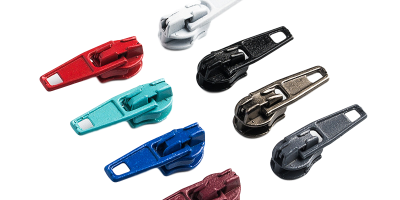Metal zippers stand as iconic symbols of durability, strength, and style, gracing garments and products worldwide. However, the market offers various zipper alternatives. To make an informed choice, it’s essential to weigh the advantages and disadvantages of metal zippers in comparison to other options.
Advantages of Metal Zippers:
- Durability: Metal zippers are known for their robustness, enduring frequent use without malfunction.
- Strength: The metal teeth offer exceptional strength, making them the go-to choice for heavy fabrics and industrial applications.
- Aesthetic Appeal: The metallic finish lends a touch of sophistication, elevating the visual appeal of clothing and accessories.
- Longevity: Metal zippers outlast their plastic counterparts, reducing the need for frequent replacements and contributing to sustainability.
Disadvantages of Metal Zippers:
- Weight: The metal components contribute to a higher overall weight, which might impact comfort and practicality in some cases.
- Corrosion: Without proper care, metal zippers can corrode over time, particularly in humid or corrosive environments.
- Noise: Metal teeth, while sturdy, can produce noise during movement, which might be undesirable in certain settings.
When considering whether to opt for metal zippers or alternatives like plastic or nylon zippers, factors such as usage, environment, and aesthetics play a pivotal role in the decision-making process. Incorporating relevant keywords such as “metal zipper vs plastic” and “metal zipper advantages and disadvantages” will enhance your content’s discoverability in search results while ensuring that it remains informative and insightful.


















